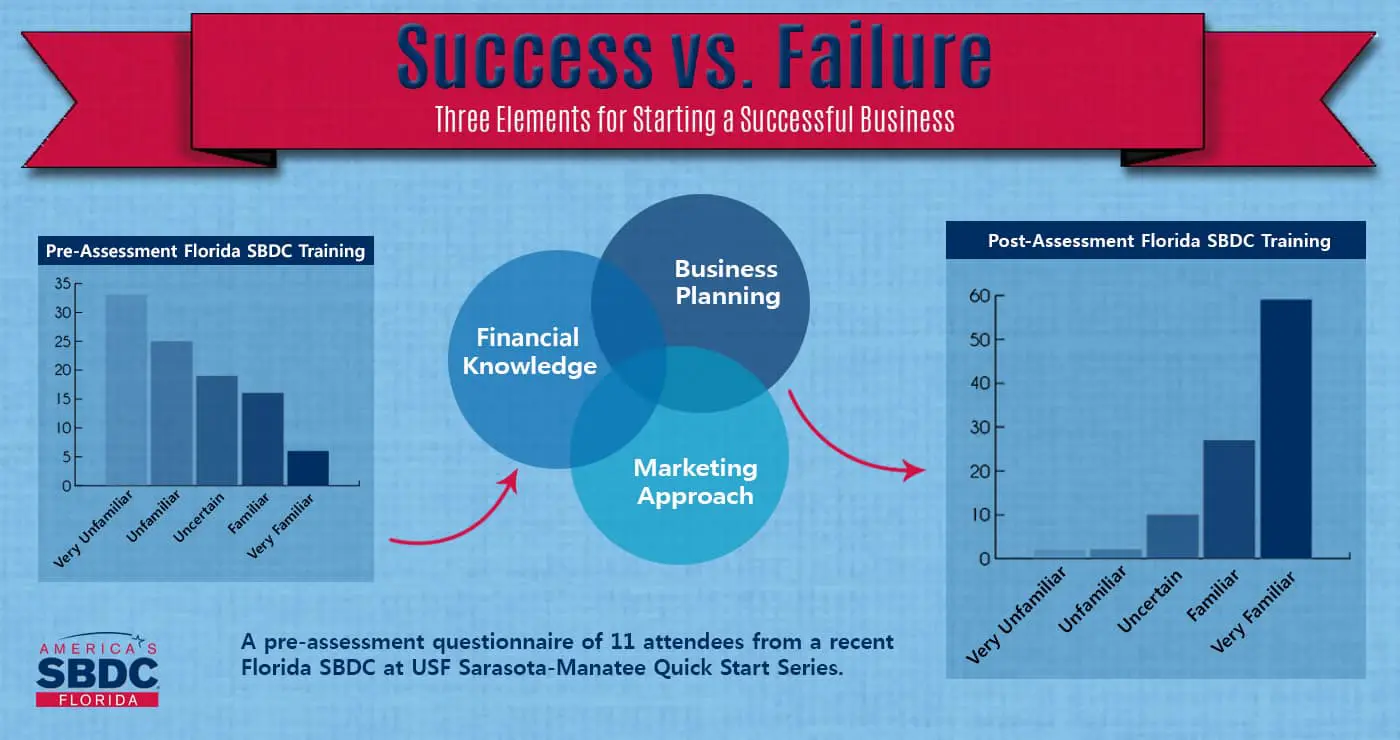Success vs. Failure: Three Elements for Starting a Successful Business
Starting a business can be both exciting and risky. On the up side, the thought of being your own boss is appealing to many people. Coupled with an innovative idea or a different way of offering a product or service, the business may produce a comfortable lifestyle or perhaps, over time, become a large business.
However, the fear of failure deters many perspective folks from entering the ranks of entrepreneurship. Often there is no direct line to success or failure when operating a business. The reality is that most businesses operate with mini successes and failures along the way. The successes deserve to be celebrated, while the failures should be considered lessons for learning moving forward. Yet many startup businesses don’t survive for long.
There are many reasons why start-up businesses fail. The SBA attributes most business failure to a lack of experience. So, how do perspective business owners equip themselves with the experience needed to ultimately succeed in a business? Business owners need to be armed with three important success factors. These success factors include business planning, financial knowledge, and a marketing approach.
It is also essential to have knowledge about the industry you plan to delve into. We have heard that knowledge is power. Such knowledge may increase opportunities for your business success while significantly reducing the odds of failure.
Understanding the important elements of success factors that drive business is critical to succeed within a given industry. Here are the important basic elements of the key success factors to gauge the feasibility of your business venture:
Business Planning
Businesses don’t plan to fail, they fail to plan.
Take the time to plan for a successful business by building a road map that will detail how you expect your business to function. Develop a strategic direction for your business that differentiates your business from that of your competition.
Do thorough research on your industry. Find out as much as you can from industry research reports such as First Research and EASI Demographics, which can usually be found at your public library.
Financial Knowledge
Create a breakeven analysis. Know how much monthly revenue you will require to break even. Equally important is to know what time during the month you will break even. Do you still have time in each month to earn a profit?
Prepare properly for funding your business by knowing your options.
Marketing Approach
Prepare a market feasibility study. Be sure that your business is viable and that your product or service can be supported. Develop a marketing strategy prior to starting your business.
A pre-assessment questionnaire of 11 attendees from a recent Florida SBDC at University of South Florida Sarasota-Manatee Quick Start Series revealed that the attendees were unfamiliar with 58% of many important aspects related to running a business. Yet, after the Quick Start Series, the post-assessment survey showed that these attendees gained 86% familiarity about knowledge, insight, and information needed to successfully run a business operation. This significant quantifiable result increased the expertise of these attendees, which may very well be the secret sauce for a successful business venture.
[blog_list thumb=”medium” showposts=”1″ post_content=”full” category_in=”335″ disable=”image,meta,more”]





